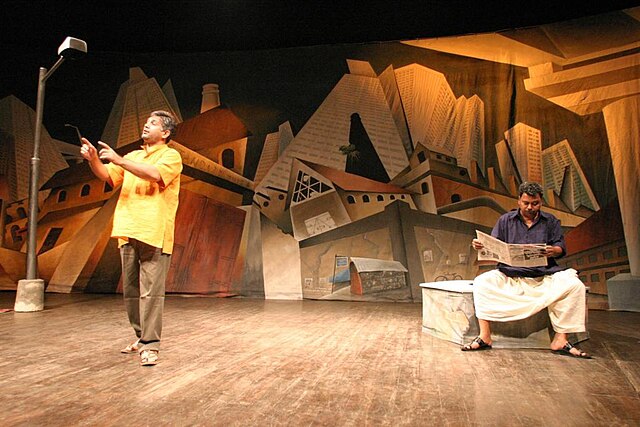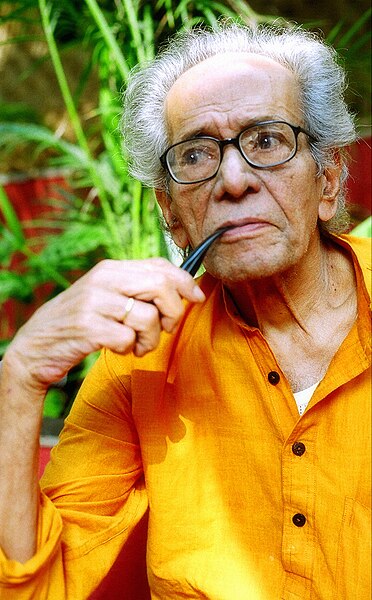Habib Tanvir was one of the most popular Indian Urdu, Hindi playwrights, a theatre director, poet and actor. He was the writer of plays such as, Agra Bazar (1954) and Charandas Chor (1975). A pioneer in Urdu and Hindi theatre, he was most known for his work with Chhattisgarhi tribals, at the Naya Theatre, a theatre company he founded in 1959 in Bhopal. He went on to include indigenous performance forms such as nacha, to create not only a new theatrical language, but also milestones such as Charandas Chor, Gaon ka Naam Sasural, Mor Naam Damad and Kamdeo ka Apna Basant Ritu ka Sapna.
Habib Tanvir at Prithvi Theatre, Mumbai; November 2005
Khalid Abidi, Prof. Desnavi Playwright Habib Tanvir.
Hindi theatre is theatre performed in the Hindi language, including dialects such as Braj Bhasha, Khari Boli and Hindustani. Hindi theatre is produced mainly in
North India, and some parts of West India and Central India, which include Mumbai and Bhopal. Hindi theatre has its roots in the traditional folk theatre of North India, like Ram lila and Raslila, and also influenced by distant Sanskrit drama. Starting with Bhartendu Harishchandra in the late 19th century and subsequent playwrights like Jaishankar Prasad, Mohan Rakesh, Hindi theatre came of age in the 1940s and 50s, when IPTA movement created a new brand of theatre practitioners in Hindi speaking areas, especially with IPTA Mumbai, Prithvi Theatres of thespian Prithviraj Kapoor, and theatre artiste Habib Tanvir, paving way for next generation of artists who came out once National School of Drama, Delhi started functioning in 1959.

Performance of a Hindi play, Cotton 56, Polyester 84 by Sunil Shanbag about life in Girangaon, Mumbai, 2006.



